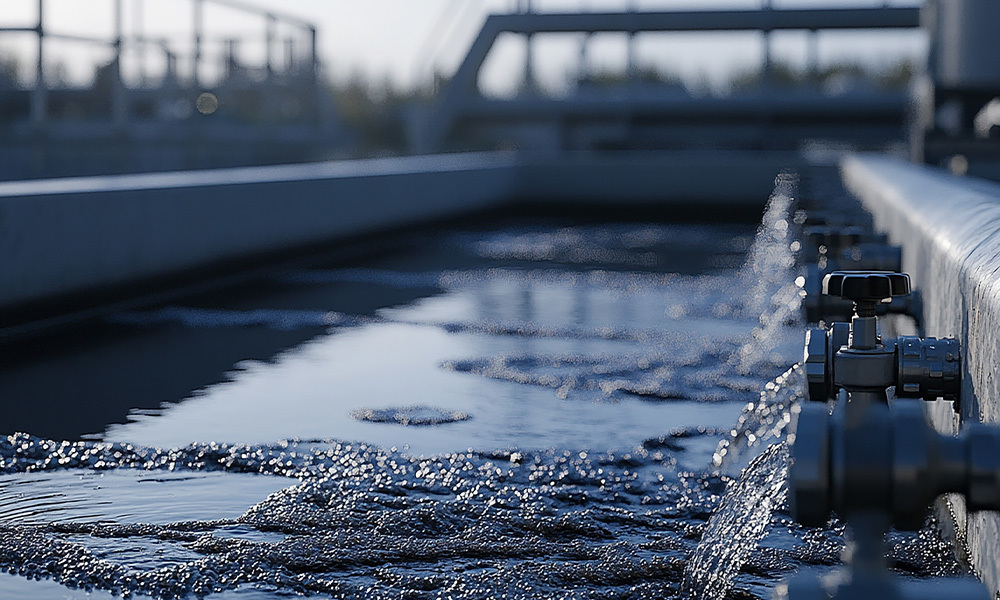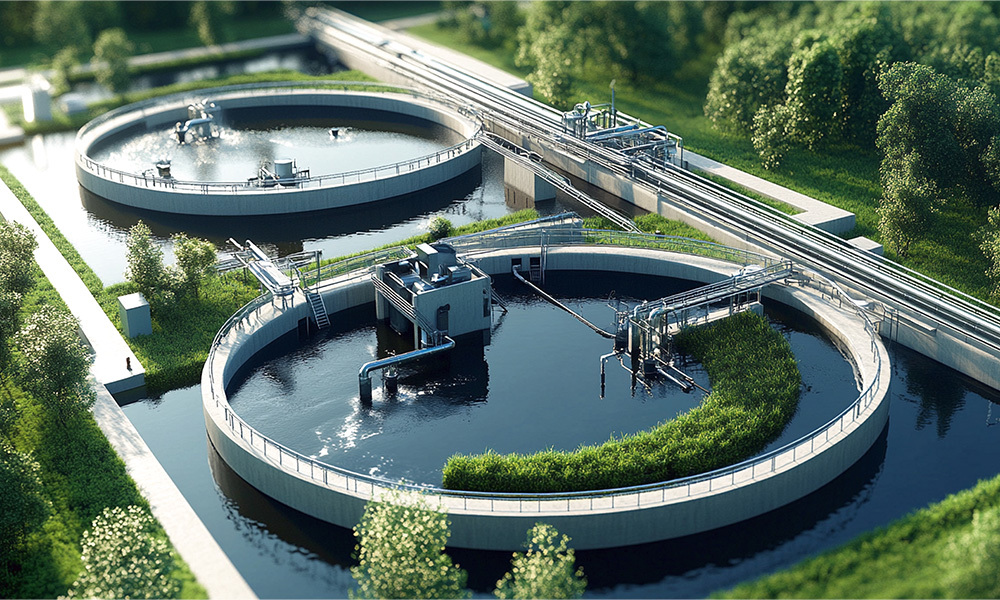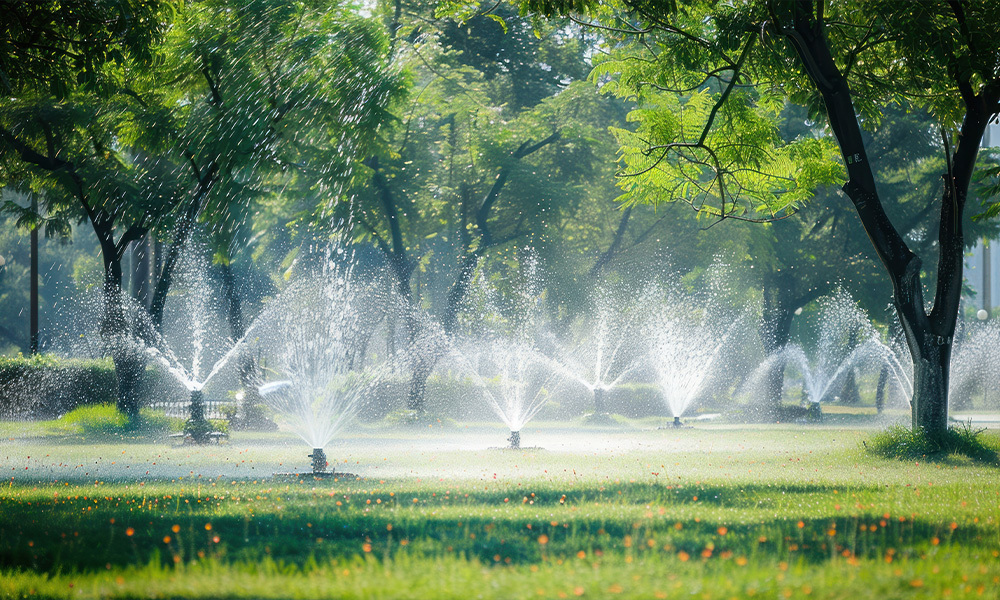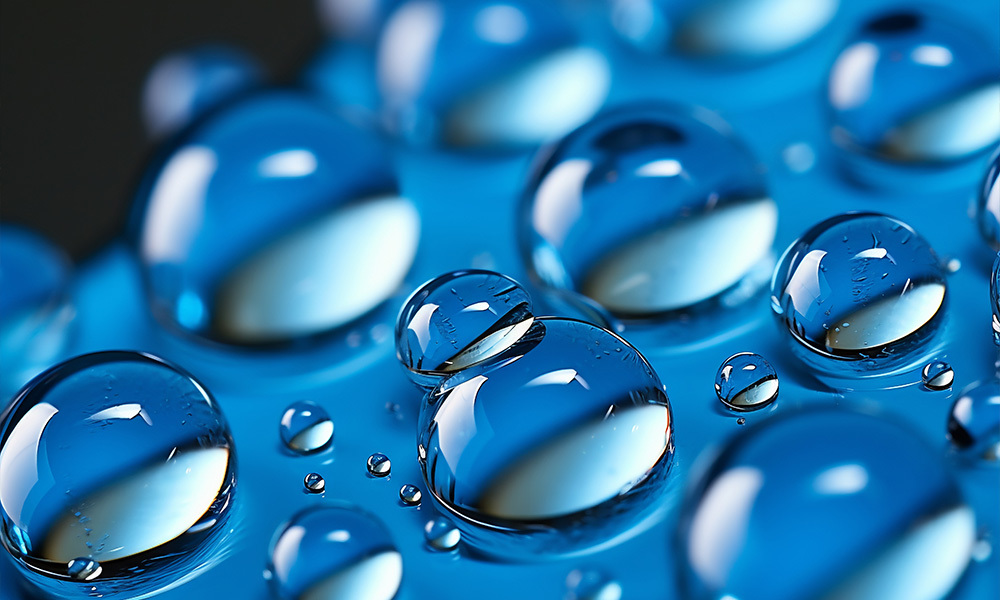Industrial Wastewater Discharge
Zero discharge of industrial wastewater refers to the use of technologies such as clean production, water resource recycling, and deep end treatment (membrane separation, evaporation crystallization, salt separation crystallization) in industrial production to achieve full recovery or harmless disposal of industrial wastewater, ultimately achieving the goal of "zero discharge". It is a key measure for China to implement the "dual carbon" strategy and promote green manufacturing. In terms of policy, documents such as the "14th Five Year Plan for Energy Conservation and Emission Reduction" clearly require key industries to pilot breakthroughs. In response to national policy requirements for zero discharge of industrial wastewater, Edelmans has innovatively developed the ZLP/ZHP series of reverse osmosis products. This product is widely used in multiple industrial wastewater zero discharge projects at home and abroad, helping enterprises achieve the recycling of water resources, realize the resource utilization and zero discharge of production wastewater.
View Details
Municipal sewage treatment refers to the process of treating wastewater generated by residents in urban areas during daily life, commercial activities, industrial production, etc. These wastewater mainly include domestic sewage, industrial wastewater, and rainwater runoff. Compared to traditional secondary sedimentation tanks that rely on gravity settling, MBR (Membrane Bioreactor) technology has become a key technology promoted by policies due to its high efficiency in solid-liquid separation, compact footprint, low sludge production, strong resistance to shock loads, and low-carbon energy-saving advantages. It is widely used in new construction and upgrading projects, promoting the upgrading of municipal sewage treatment towards high efficiency and low-carbon direction, and helping to achieve the dual goals of water resource recycling and carbon reduction.
View Details
Reclaimed water refers to the deep treatment of domestic sewage, industrial wastewater, etc. into regenerated water that meets specific water quality standards, which is used for industrial cooling circulation, process water, urban greening, and other fields. It is an important means to alleviate urban water resource crisis and coordinate urban water resources and water environment. By reusing reclaimed water, not only do we save water resources, but we also reduce production costs and improve environmental quality. The ultrafiltration reverse osmosis dual membrane treatment process achieves efficient water quality improvement through synergistic effects in reclaimed water reuse.
View Details
Ultra pure water refers to water in which the conductive medium in water is almost completely removed, and the colloidal substances, gases, and organic substances that do not dissociate in water are all removed to a very low degree. Edemans' UW series reverse osmosis membrane components are developed specifically for the preparation of ultrapure water, with high organic carbon (TOC) removal rate and low TOC leaching characteristics. Suitable for industries with strict water quality standards such as electronics, semiconductors, and pharmaceuticals.
View Details




